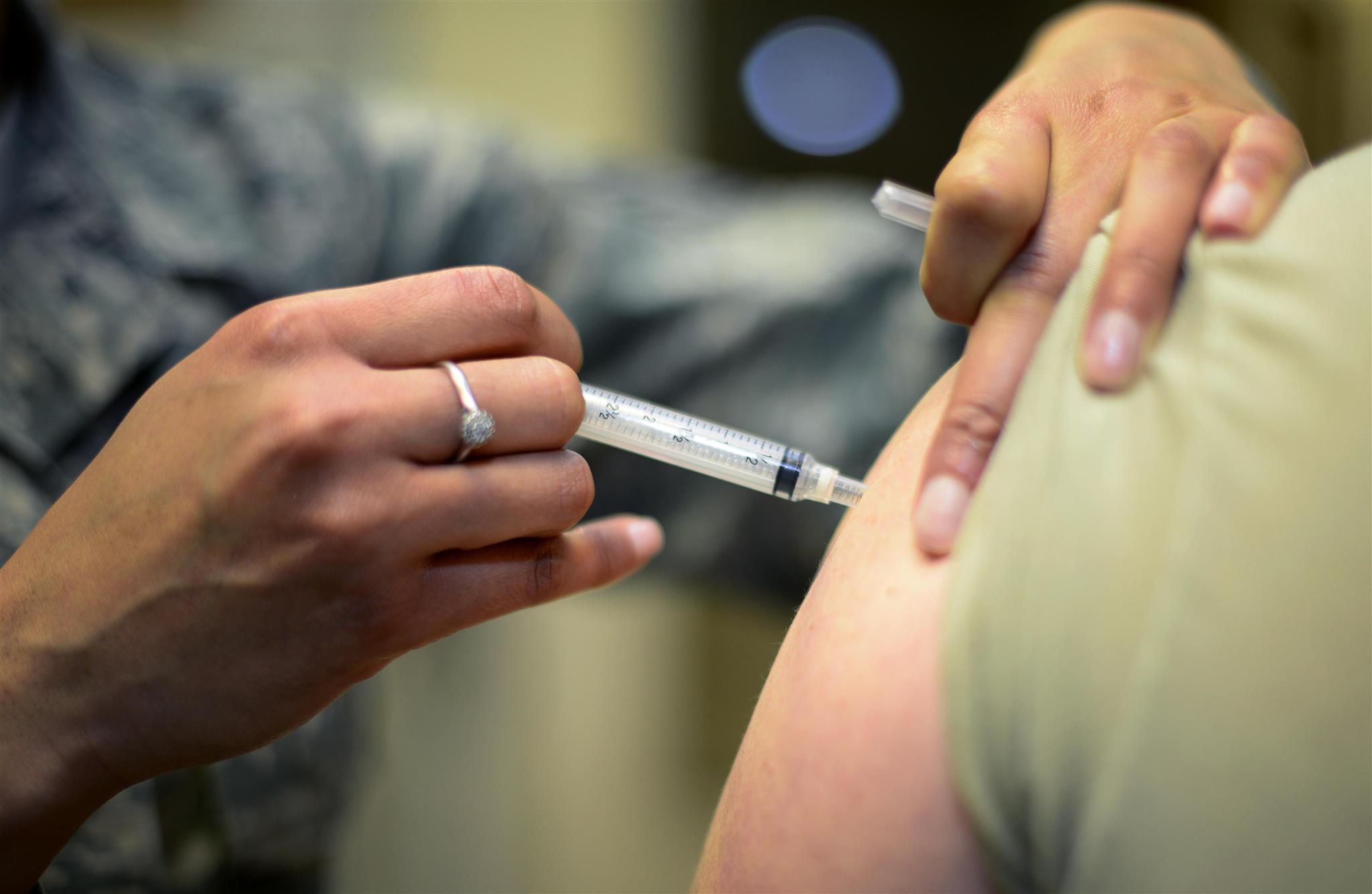The Health Centres and School Health Service administer vaccines to all children aged 0-16 years old, as part of the Childhood Immunisation Programme. This is a national, voluntary service provided free of charge.
Some of our municipal Child Health Centres also offer travel vaccines and travel advise to both children and adults. These services are provided at a cost.
If you are a refugee or asylum seeker you will be offered vaccines to complement the ones you allready have recieved in your country of origin, in order to bring your immunisation up to national standards.
The Childhood Immunisation Programme

This program contains vaccines against 12 different diseases. These are: Rotavirus, diptheria, tetanus, whooping cough, poliomyelitis, Hib-infection, hepatitis B, pneumococcal disease, measels, mumps, rubella and HPV (human papiloma virus). If your child is in a risk group a vaccine against tuberculosis will also be offered.
Vaccination normally begins when the child is 6 weeks old. Since many of these diseases strike young children particularly hard, delays should be avoided. Booster doses are given throughout the school years.
All vaccines in the Childhood Immunisation Programme are provided free of charge.
When will my child be offered vaccines?
An overview of when your child will be offered vaccines as part of the Childhood Immunisation Programme is available from the Norwegian Institute of Public Health. Here you will find further information about wich vaccines are offered when, as well as more detailed information about each vaccine.
Why is vaccination so important?
A vaccine activates our immune system without making us sick. Many dangerous infectious diseases can be prevented in this simple and effective way.
We often develop lifelong immunity when we have had a disease. However, some diseases may lead to serious complications and sometimes death. The aim of vaccination is to obtain this immunity without any of the risks of having the disease. When the majority of the population has been vaccinated against a disease, there will be few people left to whom the infection can spread. This protects the few who have not been vaccinated, such as infants or people who have an illness wich precludes them from beeing vaccinated.
Your can find more information about the importance of vaccines from the Norwegian Institute of Public Health.
What happens before and after vaccination?
Before the vaccination, the public health nurse will ask whether the child is healthy and if there were any reactions after previous vaccines. Most children show little or no reactions to vaccines.
The Norwegian Institute of Public Health has more information about what's important before and after a vaccine is administered.
What side effects can I expect after vaccination?
Most children have little or no reaction after vaccination. A fever greater than 39 ˚C and/or reduced general condition may be a sign of a serious disease and is not necessarily a reaction to the vaccine. Therefore, always contact a doctor if you are concerned about the child. The most common side effects are:
- Redness, swelling and pain at the injection site occur from time to time after all vaccines that are injected and can last for a few days.
- Mild fever, restlessness, crying, sleepiness, feeling unwell or a lack of appetite occurs in up to one in ten children after vaccination. A fever greater than 39 ˚C is uncommon.
- In small children, a rapidly rising fever can lead to fever cramps. Fever cramps are not dangerous but you should contact a doctor to rule out other acute disease.
- Pallor, feeling unwell or fainting after vaccination is more common in older children than in infants and is almost always due to the child reacting to the injection and/or the pain or to the situation.
- An allergic reaction to vaccines can occur in rare cases. The most dangerous allergic reactions come quickly after vaccination. Therefore, the child should wait at the public health clinic for at least twenty minutes after vaccination.
What vaccines have I or my children been given?
In the vaccines overview at Helsenorge.no you will find vaccines that are registered for you (and your children if they are under 16 years old) if you have a Norwegian personal identification number. You can also print an international vaccination certificate. You can access the vaccines overview using a personal login for which you will need an electronic ID and your 11-digit Norwegian personal identification number.
The vaccines overview at Helsenorge.no displays data from the Norwegian Immunisation Registry, SYSVAK. The service opened in 2011 and it is primarily those who were born after 1995 who will find a completed vaccination certificate here. Parents can log in and retrieve vaccination certificates for children below 16 years of age.
Travel vaccines and advise
Travel vaccines and advise to both children and adults are provided at the Health Centres in the following municipalities:
Contact your municipal Health Centere to book an appointment. Remember that travel vaccination should start as soon as possible, and that many vaccines require several doses and/or many weeks to provide adequate protection.
If you live in Ulstein or Hareid, travel vaccines are offered by your GP:
Herøy and Sande municipality does not offer travel vaccination locally. Please contact a private vaccination clinic for these services. The closest private vaccination clinics are Medi3 in Ulsteinvik, tel: +47 70 01 22 17, and Nordvestklinikk in Ulsteinvik, tel: +47 70 30 08 88. Private vaccination clinics are open for everybody, no matter what municipality you recide in.
Travel vaccination is a payable service.